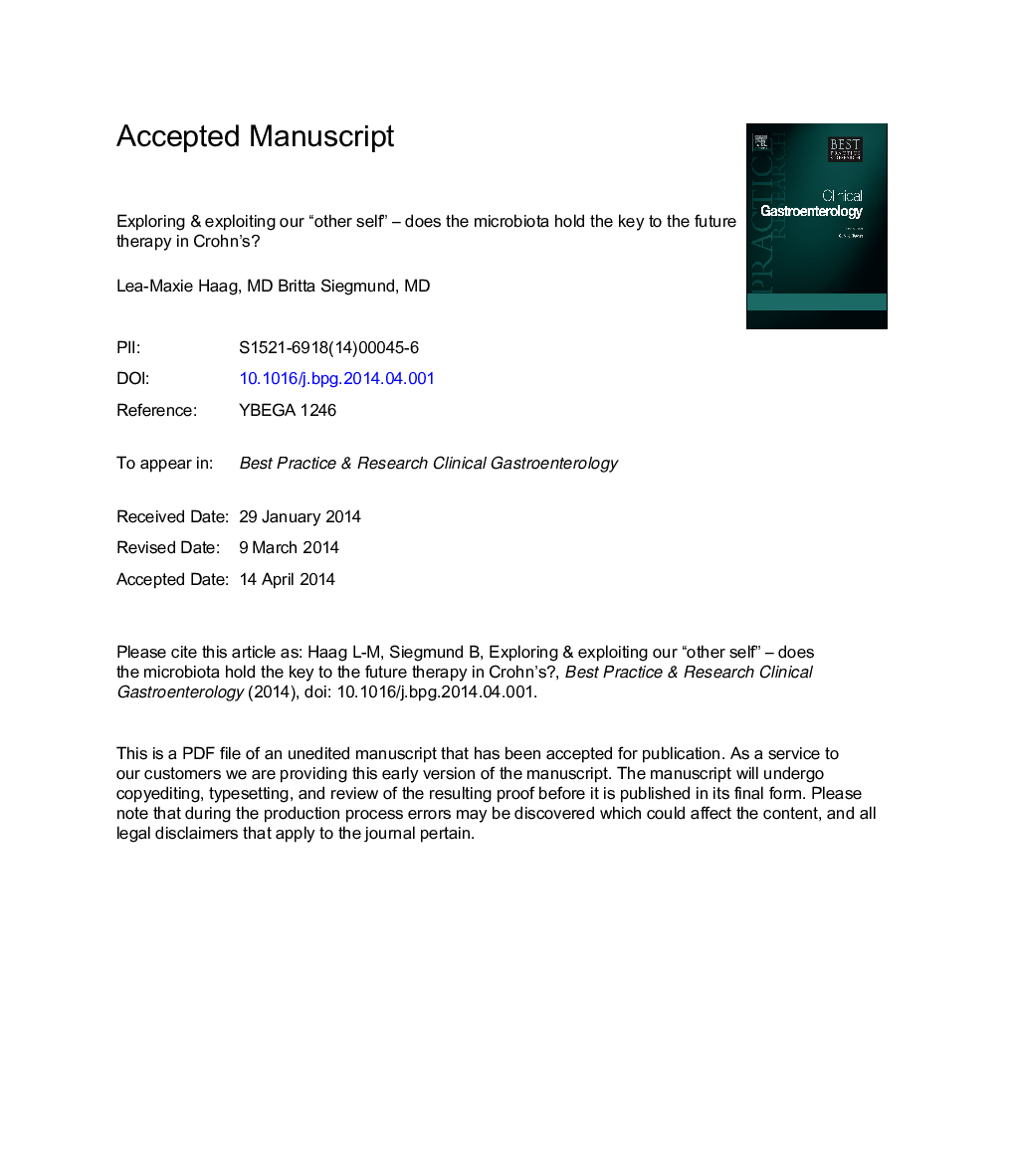| Article ID | Journal | Published Year | Pages | File Type |
|---|---|---|---|---|
| 6086350 | Best Practice & Research Clinical Gastroenterology | 2014 | 29 Pages |
Abstract
Inflammatory bowel diseases (IBD) with its two major forms Crohn's disease (CD) and ulcerative colitis (UC) are chronic relapsing disorders leading to inflammation of the gastrointestinal tract. Although the precise aetiology of IBD remains unclear, several factors are believed to contribute to disease pathogenesis. Among these, the role of the intestinal microbiota has become more and more appreciated. Evidence from experimental and clinical studies strongly suggests that chronic intestinal inflammation results from a dysregulated immune response towards components of the microbiota in genetically susceptible hosts. The growing perception of the microbiota as a major driver of disease pathogenesis raises the question, if the intestinal microbiota can be used as a therapeutic target in CD. Based on what we know about host microbiota interactions in health and disease, the objective of this review is to address the question if the microbiota holds the key to the future therapy in CD.
Related Topics
Health Sciences
Medicine and Dentistry
Endocrinology, Diabetes and Metabolism
Authors
Lea-Maxie (Resident), Britta (Head of Department),
